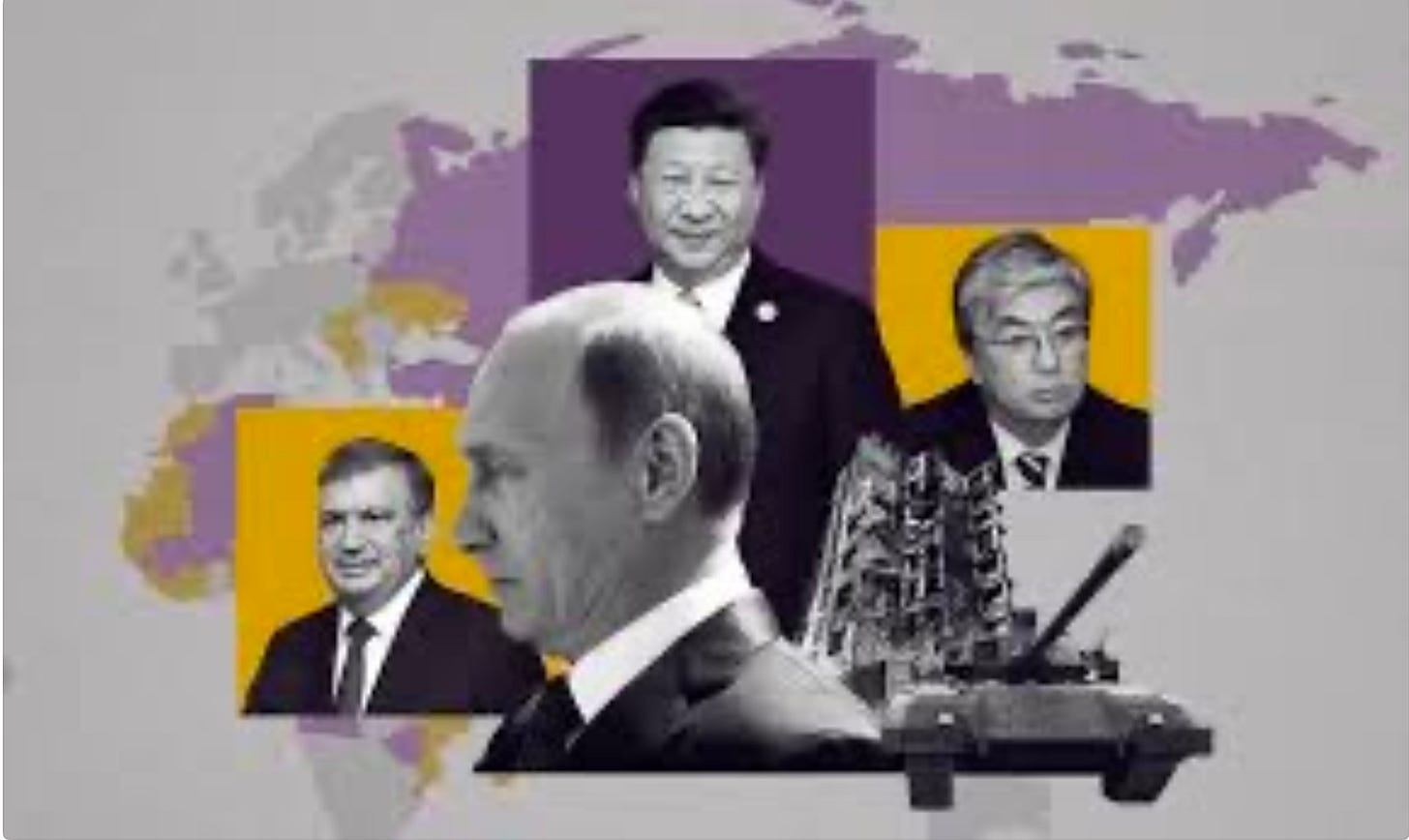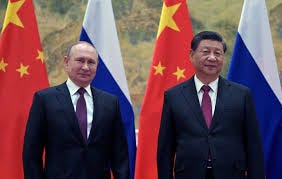The Survival of Democracy Requires A Full-Court Press: a review of Anne Applebaum’s “Autocracy Inc.”
Views & Reviews: essays and book reviews
This is a very timely, informative, compelling, and worrisome book.
Anne Applebaum’s Autocracy Inc. offers a piercing and meticulously researched analysis of how autocratic regimes operate, coalesce, and seek to erode the democratic fabric of the modern world. As a Pulitzer Prize-winning historian and one of the sharpest critics of authoritarianism, Applebaum charts the alarming rise of autocracy in the 21st century, uncovering the networks, tactics, and motivations that bind these regimes together. Her book is not merely an exposé but also a clarion call for democratic societies to act decisively against this growing threat.
The Rise of Autocracy: Economic and Cultural Roots
Applebaum identifies a variety of factors that have contributed to the resurgence of autocratic governance. Economic inequality and globalization have left many citizens disillusioned with liberal democracies, providing fertile ground for leaders who promise stability and nationalistic pride. For instance, in post-Soviet states like Hungary, economic hardship and disillusionment with EU policies have paved the way for Viktor Orbán’s nationalist agenda. Similarly, in the United States, inflation, grocery prices, housing costs, and immigration have fueled populist resentment, contributing to the rise of leaders like Donald Trump.
These examples underscore how economic frustrations and perceived threats to national identity create opportunities for autocrats to gain and consolidate power. The failures of democratic institutions throughout the World to address corruption, social fragmentation, and rapid technological change have further opened the door to demagogues. Autocrats exploit these vulnerabilities by positioning themselves as saviors of the nation—a narrative often embraced by populations seeking solace in simplicity and strength.
The cultural dimensions of this rise are equally significant. Applebaum examines how autocrats weaponize traditional values, religion, and identity politics to delegitimize dissent. For example, Russia under Vladimir Putin has leaned heavily on Orthodox Christianity to rally conservative support, while Turkey’s Recep Tayyip Erdogan invokes Islamic values to consolidate power. These leaders skillfully manipulate societal anxieties to foster loyalty and suppress opposition.
The Network of Autocrats: Cooperation Without Borders
One of the most chilling revelations in Autocracy Inc. is the extent to which autocratic regimes cooperate across borders. Despite their ideological differences, autocrats share a common enemy: democracy. Applebaum details how they support each other through media propaganda, military aid, secret agents, and financial networks.
In Ukraine, for instance, North Korea’s recent provision of weapons to Russia illustrates the interconnected nature of these regimes. Similarly, Iran and Russia’s military support for Bashar al-Assad in Syria, before he was recently deposed, underscores how autocracies band together to preserve their mutual interests. Applebaum writes, “Autocrats understand that the survival of one regime strengthens the others, creating a domino effect that pushes back against democratic momentum.”
Financial manipulation is another key aspect of their strategy. Applebaum describes how autocrats exploit international financial systems to launder money and evade sanctions. She cites the case of the Russian oligarchs who funneled billions of dollars through Western banks and real estate markets, effectively shielding their wealth while financing Kremlin-backed disinformation campaigns abroad. This example highlights how democratic institutions can inadvertently become tools in the autocrats’ arsenal when financial oversight is weak. They use shell companies, offshore accounts, and Western legal frameworks to shield their ill-gotten gains while funding disinformation campaigns. These financial maneuvers not only sustain their regimes but also weaken the democratic institutions they seek to undermine.
Applebaum underscores this central theme: “A world in which autocracies work together to stay in power, work together to promote their system, and work together to damage democracies is not some distant dystopia. That world is the one we are living in right now.”
Ideological Unity: Fear of Democracy and Anti-Americanism
Autocrats are bound together ideologically by their shared antipathy toward democracy. Applebaum argues that their hostility stems from a fear of democratic movements within their own borders, which they perceive as existential threats. This fear drives their crackdowns on free speech, independent media, and civil society.
Anti-Americanism serves as another significant unifying theme in their rhetoric. Applebaum notes that autocrats often portray the United States as a meddling imperialist power, using this narrative to galvanize domestic support and justify repression. For example, Vladimir Putin frequently invokes anti-American rhetoric, blaming the United States for orchestrating protests in Russia and supporting Ukraine as part of a broader strategy to weaken Russian sovereignty. This tactic not only deflects criticism from his regime but also consolidates nationalist sentiment among his base. “For autocrats, America represents not just a geopolitical rival but also the embodiment of the democratic ideals they seek to suppress,” she writes. This framing enables them to cast their own corruption and authoritarianism as defenses against Western encroachment.
Recommendations for Democratic Resilience
Applebaum’s analysis is not without hope. She offers a series of recommendations for how democracies can counter the autocratic onslaught. First, she emphasizes the need for unity among democratic nations. By forming stronger alliances and sharing intelligence, democracies can better confront the coordinated efforts of autocrats.
Second, Applebaum advocates for robust measures to combat financial corruption. She calls for stricter regulations on money laundering and greater transparency in global financial systems. “We must close the loopholes that autocrats exploit to fund their regimes and undermine ours,” she argues.
Third, she stresses the importance of defending democratic values at home. This includes investing in civic education, supporting independent journalism, and addressing the social and economic inequalities that autocrats exploit. Applebaum warns that democracies cannot merely react to autocratic threats; they must proactively strengthen their own institutions and ideals. She advocates for measures such as enhancing voter education to counter disinformation, investing in public infrastructure to reduce economic disparities, and fostering international coalitions dedicated to defending democratic norms and human rights. By addressing vulnerabilities and building resilience, democracies can better resist the coordinated efforts of autocratic regimes.
Trump and the Autocrat’s Playbook
Applebaum examines how Donald Trump’s earlier presidency mirrored the tactics of autocrats worldwide. She details how Trump sought to undermine democratic norms by discrediting the media, politicizing the justice system, attacking governmental institutions, and casting doubt on the integrity of elections. His overt admiration for autocratic leaders like Putin, Erdogan, and Kim Jong-un further highlighted his alignment with their strategies to remain in power.
Applebaum also scrutinizes Trump’s use of propaganda and disinformation, noting parallels with regimes like Russia and China. “Trump’s constant barrage of lies and half-truths created an alternate reality for his supporters, a hallmark of autocratic rule,” she writes. His attempts to leverage the Department of Justice against political opponents and his efforts to overturn the 2020 election results are cited as clear examples of his autocratic tendencies.
Looking ahead, Applebaum warns that Trump’s stated plans for a second term—including seeking retribution against his political opponents and the press, purging the civil service and consolidating executive power—are right out of the autocratic playbook. She underscores the urgency of safeguarding democratic institutions to prevent a descent into authoritarianism.
Conclusion
Autocracy Inc. is a sobering and essential read for anyone concerned about the future of democracy, not just in America but throughout the World. Applebaum’s incisive analysis lays bare the mechanisms of autocratic power and the existential threat it poses to democratic societies. Her call to action is clear: democracies must unite, reform, and reinvigorate their institutions to withstand the pressures of a world increasingly shaped by autocrats. As she writes in the book’s closing pages, “The fight for democracy is not just a political struggle; it is a moral imperative.”
Applebaum’s work serves as both a warning and a guide, outlining concrete strategies to bolster democratic resilience. She emphasizes the importance of creating robust institutions that can withstand populist assaults, fostering independent journalism to counter propaganda, and building alliances among democracies to share intelligence and coordinate responses to autocratic threats. Her proposals also include increasing transparency in financial systems to block autocrats' misuse of global markets and investing in civic education to fortify democratic values among citizens. These steps, she argues, are essential to counter the coordinated efforts of autocrats worldwide. It challenges readers to confront the uncomfortable truths about the vulnerabilities of democratic systems while inspiring them to believe in the possibility of renewal. In an era marked by uncertainty and division, Autocracy Inc. is a beacon of clarity and resolve that every freedom loving person should read.
(The author of this review received a B.A. in philosophy from The Johns Hopkins University and a Juris Doctor degree, with Honors, from The George Washington University Law School.)







It’s obvious that the oligarchs are the driving force behind this movement. Look no farther than musk. Until we can conquer the concentration of wealth in their hands, do we really have a chance?
I believe that under the Supreme Court decision on the Insurrection and the election and their interpretation that trump could not be removed from the ballot as a candidate, and trump winning the election by certification is entirely separate from eligibility to serve. Now trump falls under the 14th amendment section 3 and is ineligible to serve as President, it is now that the issue of the 14th Amendment is ripe and there is standing by the House, the Senate, the DoJ, the States to file motions and court cases to block from serving under the 14th amendment section 3. Of Chief Justice Roberts swears in trump knowing trump is disqualified from serving under the 14th amendment section 3, Roberts will be violating the Constitution and siding an insurrectionist. Now is the time for the Democrats to raise the 14th amendment section 3 in the House and Senate.